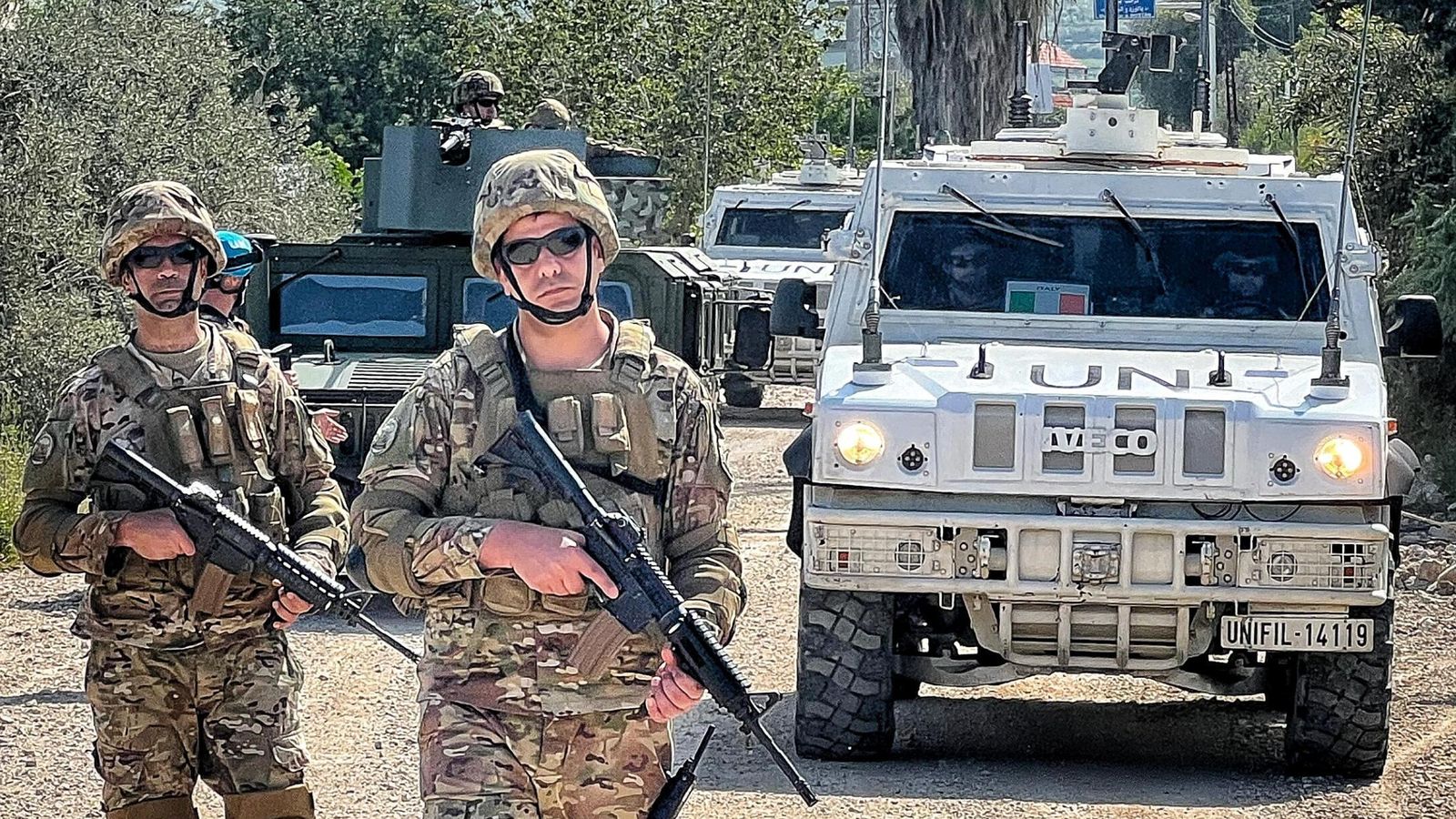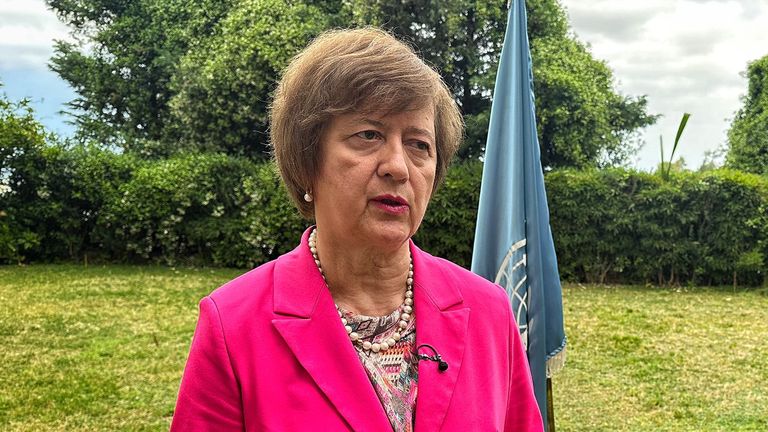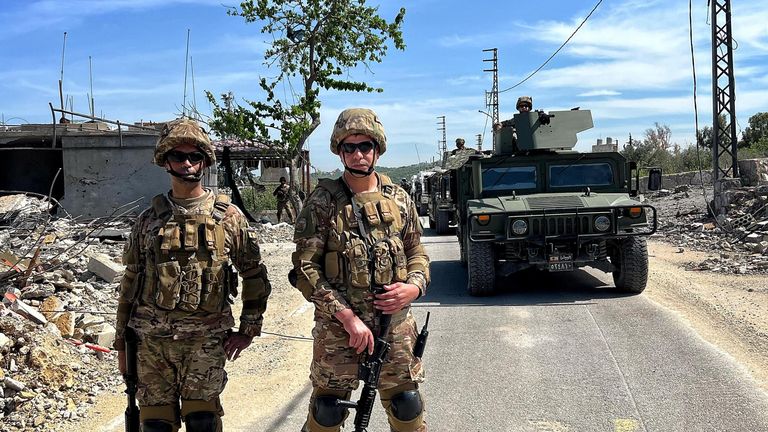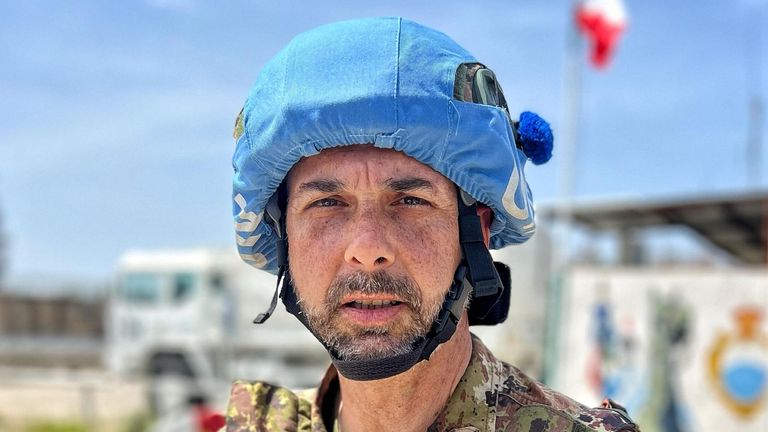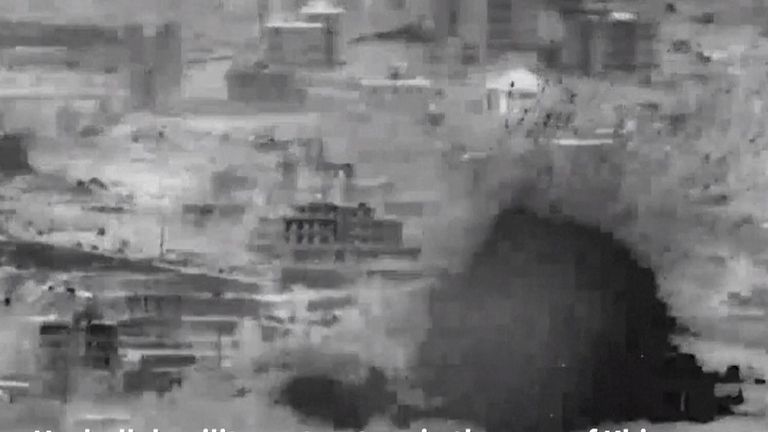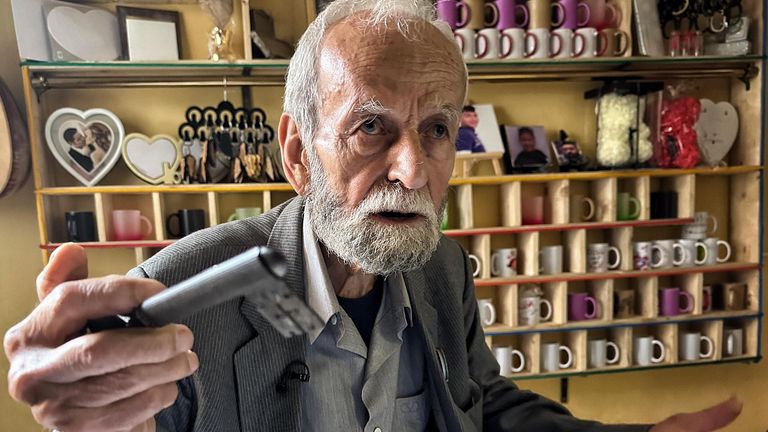The UN Special Coordinator for Lebanon has told Sky News the dangers in the region have not gone away and called for calm, wisdom and de-escalation as a matter of urgency.
Joanna Wronecka spoke from her office in Beirut about her worries and appealed for restraint from all those involved.
“I’m very concerned,” she said. “Because we need just a small miscalculation and the situation can escalate even more.”
She was referring to the spike in cross-border firing between the Israeli military and the Lebanese Hezbollah fighters who’ve been trading attacks with growing intensity since 7 October.
It’s resulted in around 100,000 Lebanese fleeing their homes along the border and around 80,000 being forced to leave their communities on the Israeli side.
We saw a trail of destruction as we joined a UN peacekeepers patrol in south Lebanon.
Village after village, town after town have been left like ghost towns, with those homes still standing now emptied of residents. We saw multiple houses and buildings flattened, craters in roads and acres of farmland left burned and unusable.
In Alma Shaab town, a few hardy folk have opted to stay despite the dangers.
“It’s dangerous to stay here,” Nader Eid said. “But we have to. We have to survive and we have to keep our home safe… and to keep Alma safe.”
Read more:
Middle East violence ‘will not stop until Gaza war ends’
Situation in northern Israel ‘untenable’
Are Israel and Lebanon heading for war?
Exchange of fire is regular and often
Walking past crushed buildings which were once people’s homes, Lieutenant Colonel Bruno Vio from the United Nations Interim Force in Lebanon (UNIFIL) says the exchange of fire and attacks is regular and often.
“For sure, it’s daily,” he says. “Every day we can count some different kind of activity and in different numbers.”
The UN mission in the country, only weeks ago, marked its 46th anniversary but used it to call for all involved to lay down their weapons and talk peace.
Before the Hamas attack inside Israel on 7 October, the border area was judged to have enjoyed a relative period of calm and stability but that all changed with the events across the border.
Since then Hezbollah fighters and Israeli troops have been exchanging more and more serious fire, violating the terms of an earlier agreement contained in the UN Resolution 1701.
That agreement preserved what’s known as the Blue Line – an official demarcation area on disputed territory between Lebanon and Israel. All sides agreed this would be a demilitarised zone with no militia or military engagement in this area.
But Israeli forces continue to strike inside Lebanon at locations they say are being used by Hezbollah to mount attacks inside Israel.
Hezbollah argues they are mounting strikes in support of the Palestinians under Israeli bombardment in Gaza, as well as distracting IDF troops on a separate additional front.
There are many suspicions among the Lebanese that the Israeli attacks are an attempt to snatch territory from them.
Whatever the motivations, the daily explosions have fuelled concerns across the region over the potential for the war to escalate hugely, drawing in multiple militias in multiple countries.
‘Lebanon is in a very sensitive place’
Ms Wronecka says: “One mistake, one miscalculation can make a difference and put this region in a completely new situation. And taking Lebanon’s geopolitical position into account, Lebanon is in a very sensitive place.
“So we deploy every day, every moment to speak about responsibility and restraint.”
Lebanon is home to around 250,000 Palestinian refugees, among them an 85-year-old man called Abu Jamal.
He fled to safety in Lebanon more than seven decades ago during the 1948 Arab-Israeli war.
The hugely traumatic event became known as the Nakba (catastrophe in Arabic) and saw more than half the Palestinian population displaced and dispossessed with many never returning to their homes.
‘I pray to see my country… before I die’
Mr Jamal sees many parallels between what’s happening now in Gaza and what he fears may happen in parts of Lebanon too.
He was eight when he left his family home – a day he remembers with searing clarity.
He has a large key which he says was the key to his family’s front door, now part of Israel. He said: “My dad told me that it would be one or two months and we’d go back home – and we’ve been here in Lebanon for 76 years.
“This is the key to our home. I’m still hanging it in my bedroom. I pray to God we return back to our country Palestine. I pray I see my country and our land before I die.”
Reporting with cameraman Jake Britton, specialist producer Chris Cunningham and Lebanon producer Jihad Jineid.
